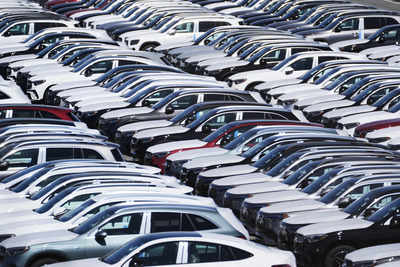American President Donald Trump has announced a 25% tariff on auto imports, a decision the White House says will boost domestic manufacturing. “This will keep driving growth,” Trump told reporters, emphasizing that the tariffs, expected to generate $100 billion annually, will take effect in April. Trump insists that the tariffs will encourage new factories in the US and dismantle what he calls a “ridiculous” supply chain spanning the US, Canada, and Mexico. To highlight his commitment, he declared, “This is permanent.”
Tesla CEO Elon Musk did not advise on Auto tariffs
Trump clarified that Tesla CEO Elon Musk, a key advisor, did not influence the tariff decision, citing a possible “conflict” due to Musk’s role at Tesla. “He’s never asked me for a business favor,” Trump noted. When asked if the tariffs would benefit Tesla, Trump suggested they could be “net neutral or they may be good.” He pointed to Tesla’s vehicle assembly plants in Austin, Texas and Fremont, California and opined that, “anybody that has plants in the United States — it’s going to be good for them.”
Musk, who continues to lead Tesla and SpaceX, also heads the Department of Government Efficiency (DOGE), aimed at cutting federal spending and streamlining agencies.
Tesla’s ‘warning letter’ to the US government on Auto tariffs
Despite Tesla’s domestic focus, the company recently cautioned the US Trade Representative in a letter that some components, like headlamps, brakes, and circuit boards, are “difficult or impossible” to source locally, urging consideration of the tariffs’ broader impact. The company urged the USTR to “consider the downstream impacts of certain proposed actions taken to address unfair trade practices.”
Tesla and peers like Ford and General Motors often rely on suppliers in Mexico, Canada, and China. While Tesla faces rising competition in the electric vehicle market, its chief rival, China’s BYD, remains barred from US sales.
Global outrage on auto tariffs imposed by the US
Globally, the tariffs have sparked outrage. Germany called for a strong EU response, Japan hinted at countermeasures, and experts predicted higher vehicle prices. Italian automaker Ferrari plans a 10% price hike on U.S.-sold models starting next week. The duties, effective April 3 at 12:01 a.m. Washington time (0401 GMT), apply to foreign cars, light trucks, and parts.
In the U.S., the American Automotive Policy Council, representing Ford, GM, and Tesla, stressed that tariffs should avoid burdening consumers or undermining competitiveness. JPMorgan warned of “global supply chain disruptions” due to the sweeping policy.




